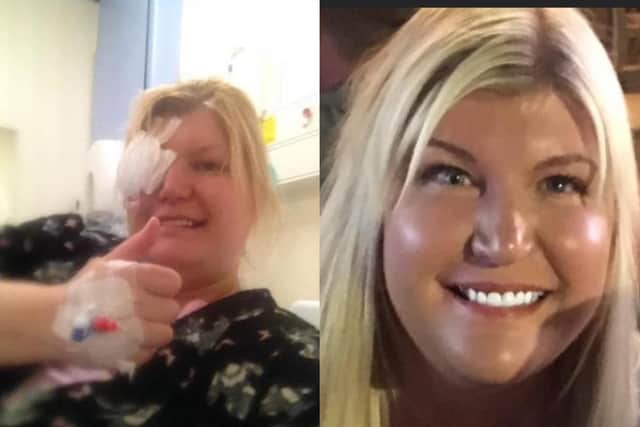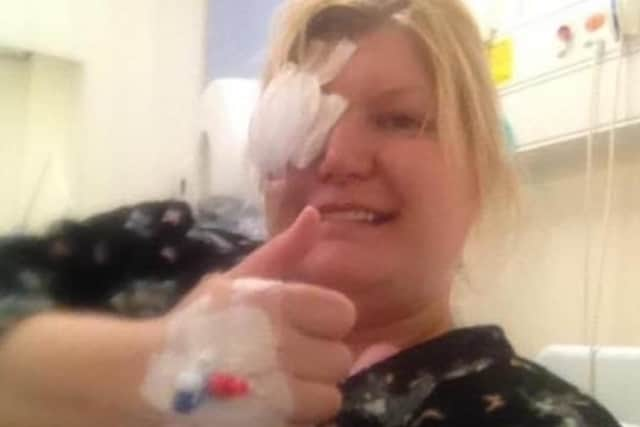Sunderland woman who lost complete sight in right eye makes cornea donor plea after gaining her vision back with transplant
and live on Freeview channel 276
Deborah Fowler was diagnosed with a condition called keratoconus – when the cornea thins and bulges outward into a cone shape – when she was just 36, after she started to lose her vision and found herself struggling to read numbers as her sight became affected by blurring and shadows.
She then developed a serious infection which led to her cornea perforating and the complete loss of vision in her right eye.
Advertisement
Hide AdAdvertisement
Hide AdDeborah then waited two years for a transplant but in that time developed a ‘huge cataract’ which led to an emergency cornea transplant in her right eye.


Deborah, now 45, said: “I also had very poor vision in the left eye so overall my vision was too poor to work. I struggled going out in the dark. I became very depressed because my sight, something I relied on, was being taken away. I didn't drive for 11 months.
“The transplant and recovery went smoothly considering the complications the consultants expected from my past history. It was the most amazing best gift ever to get my sight back. I can go out a lot more in the dark, I can read more clearly, and go back to work."
Now to mark World Sight Day on Thursday October 13, Deborah, who works in finance, is calling on others to register their support for cornea donation.


Advertisement
Hide AdAdvertisement
Hide AdShe said: “I take anti-rejection medication just in case it rejects as I have a highly vascularised cornea. The last time I got my eyes checked at the hospital they said my sight is better than they thought it would be. I think about my donor a lot. I could not thank my donor and their family enough for what I have received.”
Amanda Ranson, Head of Operations, Tissue and Eye Services at NHS Blood and Transplant, added: “Cornea donation means there can be light after darkness, and sight after blindness.
“We understand that some people feel less comfortable about cornea donation. We also know many older people don’t realise they can donate, even if they have eye sight problems or other health problems – we provide corneas for transplant from donors in their 70s, 80s, and 90s.”

